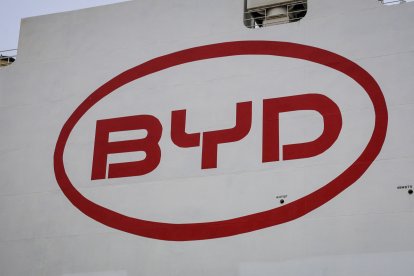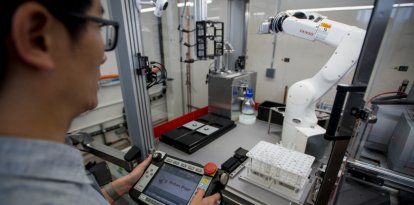Chinese electric car maker BYD to integrate DeepSeek AI into its models
BYD shares rose 4.5% to a record high on the Hong Kong Stock Exchange on Tuesday, after climbing nearly 20% in the days leading up to the announcement.

Emblem of Chinese car brand BYD.
Chinese electric carmaker BYD announced this week that it will integrate an autonomous driving model into its models and use DeepSeek A.I. in its operating systems.
BYD shares rose 4.5% on the Hong Kong Stock Exchange on Tuesday, after rising nearly 20% in the days leading up to the announcement. The integration of the autonomous driving system will be implemented even in BYD's cheaper models.
Prior to BYD, other Chinese manufacturers have already announced that they will use DeepSeek's A.I. in their systems, as was the case of Geely, Great Wall Motors and Leapmotor.
BYD is Tesla's main electric vehicle competitor in China and is increasingly gaining ground in international markets. According to AFP, Monday's announcement led analysts to suggest that a new price war is on the horizon.
BYD installed its "God's Eye" autonomous driving system in at least 21 models, including the Seagull hatchback that sells for $9,550.
The system includes features such as remote parking and autonomous highway navigation that were previously featured on more expensive vehicles. Tesla has similar features on its cars valued at $32,000 or more.
"Autonomous driving is no longer something rare and distant, it is a ... necessary tool," BYD founder Wang Chuanfu argued Monday at a live-streamed event.
He anticipated that such technology in the near future will be "an indispensable tool like seat belts or airbags."
The artificial intelligence firm made headlines in January when it unveiled a chatbot comparable to its U.S. rivals for a fraction of the cost. However, several reports indicate that the use of this A.I. could entail serious security and data protection breach issues.
DeepSeek maintain a policy of little transparency with the public and their servers are physically located in China, which exposes their content to the government in Beijing without the need for a court order, according to Chinese law.
RECOMMENDATION





















